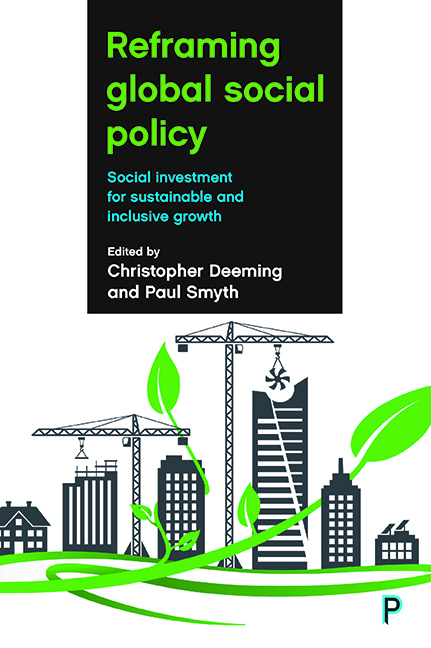Thirteen - Limits to Growth revisited
Published online by Cambridge University Press: 12 April 2022
Summary
Anyone who believes that exponential growth can go on forever in a finite world is either a madman or an economist. (Kenneth Boulding, 1973)
[There are] no great limits to growth because there are no limits on the human capacity for intelligence, imagination and wonder. (US President Ronald Reagan, 1983)
Introduction
Inclusive growth is better than non-inclusive growth. Social investment is better than anti-social investment. We are not lacking in examples of either of these less desirable beasts. But neither inclusive growth nor social investment necessarily questions the goal of growth itself. Indeed a leitmotif of social investment has been that social policy can be ‘good for growth’; while the inclusive growth framework makes growth the sine qua non of human development (World Economic Forum, 2017). Neither approach confronts what is the single most critical question faced by economics on a finite planet. What can prosperity possibly look like in a world of environmental and social limits (Jackson, 2017)?
This question of limits is often left out of social policy discussions. There are reasons for this omission. In a world free of limits, exponential economic growth could continue indefinitely; it is then always possible (in theory) to make the poor better off without in any way denting the expectations of the rich to be better off themselves. Social justice can be approached safely, as it were, behind the canopy of an expanding cornucopia. Introducing limits overturns this convenient fiction. Indeed, as the United Nation's 2030 Agenda for Sustainable Development shows, the links between sustainability and social justice are so deep that we have to develop a more integrated approach. It is worth noting that a strong and growing body of social policy scholarship is now developing these links (Gough, 2016; Dryzek, 2008). But as these authors indicate, the future conversation depends very much on how we understand the environmental perspective and in particular the limits to growth.
Our aim in this chapter is to show how critical the question of limits is for our thinking about social justice and the roles of social policy. We accomplish this by revisiting the book Limits to Growth first published in 1972 by the ‘Club of Rome’ a group of about 30 leading thinkers who were particularly concerned about the potential impacts of exponentially increasing consumption in a finite world (Club of Rome, 2017).
- Type
- Chapter
- Information
- Reframing Global Social PolicySocial Investment for Sustainable and Inclusive Growth, pp. 295 - 322Publisher: Bristol University PressPrint publication year: 2017



